|
I recently preached on Ephesians 2:1-10 at Brookside Church - a passage which I would say "pound for pound" is the best ten-verse spotlight on God's amazing grace that we find in the New Testament.
Here's a quick outline of the passage at a glance:
0 Comments
Not too long ago I ran across a 10 min video that Justin Taylor posted on The Gospel Coalition, capturing how a tribe in Indonesia responded when they received copies of the New Testament in their own language. Because I wanted to keep this video easily accessible for myself, and because of how this video reinforces the value of biblical literacy (something the Brookside Institute is all about), I wanted to post it here as well. In John 5:39 Jesus teaches that the Scriptures testify about Him. Isaiah 55:10-11 tells us that God's Word accomplishes His purposes as it goes out. Since that's the case, we should celebrate and support every example of God's Word being made accessible to more and more people. As the Kimyal Tribe continues to engage God's Word, may it point them more and more to the greatness of Jesus, and may God accomplish mighty things through His Word among them! You may also be interested in...Temptation can take us to a place we never wanted to go. Talk with anyone who’s responded poorly to temptation and they’ll agree with this. (This is every one of us who are reading this, by the way.) We’ve seen the hurt on the face of someone we’ve sinned against. We’ve felt the shame of personal defeat and regret, when we’ve given into the same sin again and again. What looks so good when we’re on the front end of temptation can be so destructive if we give in to it.
In light of all this, the perspective James gives us on sin is so important. Here's what James 1:13-15 says: It's Not Too Late! Our Highlight Reel of the Top 5 Blog Posts Each Month, for the Last 6 Months1/19/2019 Did you miss some of the most frequented posts at the Brookside Institute recently? It's not too late!
Based on the number of "hits" each month, here's our highlight reel of the top 5 posts here on the Brookside Institute blog for the last six months - July 2018 through December 2018. Take a minute to scroll through the list below, and either catch up on things you may have missed or revisit things that were especially helpful. Looking for some of the best biblical and theological books to read in 2019? Below I've collected and listed five "sources" that are worth listening to for some worthwhile reads. My hope is that as you scan these lists, you'll find at least 2-3 books that strike your interest enough for you to pick up the book and dig in. Click on either the image or the title below and you'll be taken directly to a page where you can see which books are on that particular list. My Top 5 Reading Lists of 2018Interested in more?Below you'll find a few other links to related posts. Happy reading!
It's no exaggeration to say that Christianity stands or falls on Jesus' resurrection. If Jesus wasn't raised bodily from the dead, our faith is "useless" and "futile" (see 1 Corinthians 15:14 and 15:17-19). But if Jesus HAS been raised bodily from the dead...well, we'd better pay attention to Him. The Christian faith has meaning, our future has hope, and our mission matters.
So why is it credible to believe in Jesus' resurrection? Or even beyond that, why does it make the best sense of the evidence we have to believe that Jesus rose from the dead? Here are four lines of evidence that - when put together - build a strong case for the reliability of Jesus' resurrection. Christmas is less than three weeks away (!!), and that means many of us are thinking through what to buy for others in our lives. If you're looking for ideas for the "reader" you know, here are six accessible suggestions based on books I've read and recommend, or books that are very much on my radar screen to read soon. Most of these suggestions have been recently published (in the last 2-3 years) and will be linked to an Amazon page where you can learn more. You'll see they're listed under 6 categories that I try and stay loosely tethered to:
What other books (in any of these categories listed above) would you suggest people consider? List 'em here!
This posted in adapted from an earlier post on this site, first composed on October 31, 2014. Tonight is Halloween. A couple of my kids will likely be going door-to-door getting candy, and we'll probably be handing out candy to neighborhood kids from our door as well. But October 31 is significant for more reasons than just this. October 31 is also "Reformation Day" - the day in 1517 when a monk named Martin Luther nailed 95 Theses to a church door in Germany and sparked what we now call the Protestant Reformation. (For a recommended introduction to Luther's 95 Theses, check out this book.) Here's what Philip Schaff, a noted church historian, says about the significance of the Reformation: “The Reformation of the sixteenth century is, next to the introduction of Christianity, the greatest event in history. It marks the end of the Middle Ages and the beginning of modern times. Starting from religion, it gave, directly or indirectly, a mighty impulse to every forward movement, and made Protestantism the chief propelling force in the history of modern civilization.” If your'e looking to brush up a bit on Reformation history, check out this post from Ligonier Ministries. This post shares a bit more about the history of the Reformation and key players in it. I encourage you to take a few minutes on this Reformation Day of 2018 and check it out. Here's the post: "The Reformation and the Men Behind It" by Stephen Lawson
Please note the usual disclaimer, that my recommendation of this article is not necessarily an endorsement of everything else on the site where this was posted. As always, read both discerningly and graciously, and with the Bible as your final authority. This Fall, Brookside Church is preaching through much of the Gospel of Luke on Sunday mornings. (Check out our "Best. News. Ever." series here.) And in Luke 4:1-13 we read the story of Jesus overcoming Satan's temptations in the wilderness. There are two levels you can read this story on. The first level points to WHO Jesus is. With the name "Adam" - our first father - still ringing in our ears at the end of Luke 3 (Luke 3:38), we then read about Jesus doing what Adam didn't - overcoming Satan's temptations, relying on God rather than himself (cf. Genesis 3:1-6). Jesus is the "better Adam" who has victory over Satan. The second level unpacks HOW Jesus defeated Satan. Most practically, he did this by rightly using Scripture (and relying on the Author of Scripture). Satan overcame the temptations and lies of Satan with the truth of Scripture. I've included a practical resource we developed for this below (tied most closely to this "second level" of reading the story mentioned above). Our hope and prayer is that this resource can help you both identify lies of Satan and immerse yourself in Scripture - so that you can overcome the lies of the enemy with the truth of God's Word.
Earlier this summer I took some time and worked through John S. Feinberg's helpful (and thorough - 799 pages!) Light in a Dark Place: The Doctrine of Scripture. Among so many other things I enjoyed about the book, I benefited from how we approached something called "the animation of Scripture" - the belief that Scripture has life-giving, life-changing power that no other book shares. This life-giving, life changing power of the Bible is WHY the Brookside Institute champions biblical literacy and Bible engagement in all the ways it does. Not because Bible engagement is an end-in-itself, but because the Bible is the primary means by which God introduces Himself, a primary way the Spirit works to grow us, and the clearest presentation of the all-satisfying Person and work of Christ. Toward the end of this chapter on the animating power of the Bible, Feinberg draws several practical implications from this belief. Let me quote one of the implications he highlights (from pp. 678-69), in hopes that this will encourage all of us to keep coming back to the Bible, that we might experience the life-changing, life-giving power it offers in all the ways it offers it: God's word has power like no other words ever spoken. Thus, it should be the focus of our study and of our everyday living. Whatever we are called to do, and whatever challenges confront us, our first response should always be to ask what Scripture says about the subject and the deeds in question. Needless to say, that can't happen if we don't read and ponder Scripture. Sadly, even Christians committed to verbal plenary inspiration, the fully inerrancy of Scripture, and the power of God's word find little time in the course of a week to read even a little of it. Believers know the message of Psalm 1 as it compares the happy and blessed man with the man who is unhappy and heading for disaster. The key to both is what they do with Scripture. They happy man grounds his life in God's word. He does not merely take a 'small taste' of it for a half-hour each Sunday morning when his pastor preaches. He meditates on God's word both day and night. As a result, when the storms of life confront him, he survives and even flourishes. The unhappy man, whose life is grounded in pleasure, money-making, self-aggrandizement and / or any of the many philosophies that leave out God and his word, is not ready for life's challenges. At some time in his life there will likely be disaster and ruin, and even if not in this life, he is headed for a horrific eternity. If you liked this post, you might also like... |
Tim WiebeChristian. Husband. Father. Pastor. Learner. Contributor. Reader. Categories
All
Archives
March 2024
|
||||||||||||
© 2014-2024 | 11607 M Circle, Omaha NE, 68137 | www.thebrooksideinstitute.net










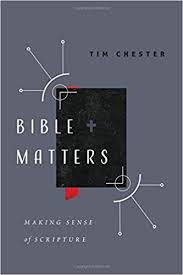
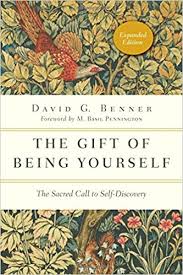
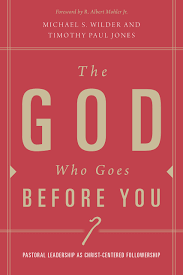
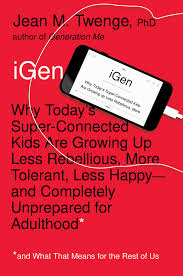
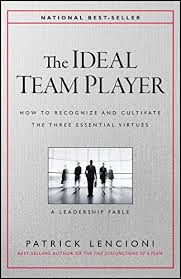




 RSS Feed
RSS Feed
